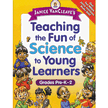Linking Science to A Children’s Story Book

“Ferdinand the Bull” by Munro Leaf (Author) Robert Lawson (Illustrator) Ferdinand is an unusual bull. He has always been gentle and preferred smelling flowers instead of butting heads with other bulls. So, why was this gentle giant selected as to be one of the roughest, toughest, meanest bulls for an upcoming bullfight in Madrid?Ferdinand the Bull loves the smell of flowers.
The sweet smelling oils in flowers are used to make perfume.These oils are dissolved in alcohol.
Let your kids help you make perfume, but heed these cautions:
Make sure your kids keep the alcohol away from their nose and mouth.
Make sure no one is allergic to perfume–cloves–rubbing alcohol. Make sure the investigation is not near any flames, alcohol is flammable
Cloves are dried flower buds of the tree Syzygium aromaticum. Put five or more dried cloves in a small jar with a lid. (A small baby food jar works well.) Add just enough rubbing alcohol to cover the cloves. Secure the lid. Periodically, ask one of the kids to gently move the jar back and forth. This motion helps to mixed the oil from the cloves with the alcohol.
FYI: Perfume is made with ethyl alcohol, commonly called “drinking alcohol.” This is not to say that you can drink perfume you purchase at the store. The perfume has many things dissolved in the ethyl alcohol. Vodka is basically ethyl alcohol and could be used for this investigation, but rubbing alcohol is less expensive and since the homemade perfume is only to be put on the skin, the rubbing alcohol works fine.
It will take several days for enough oil from the cloves to dissolve in the alcohol. You can test the perfume every day or as often as you wish for 7 or more days. Do this by opening the jar and with a cotton swab, dab a few drops of the liquid on one of the student’s wrist. Ask the student to blow on the wet spot to dry it, and then spell the “perfumed” skin.
Using a clean cotton swab for each child, repeat the procedure allowing each child to be part of the testing.
Caution: Remind your class that the “perfume” must be dry before they test its smell. This allows the alcohol to evaporate leaving only the scented oil on their skin. .
